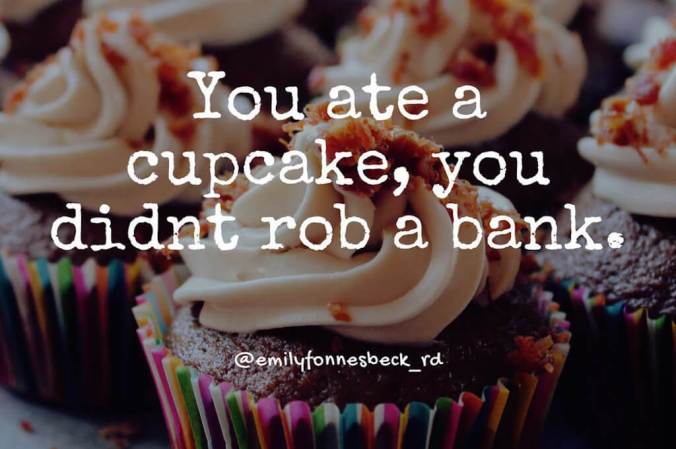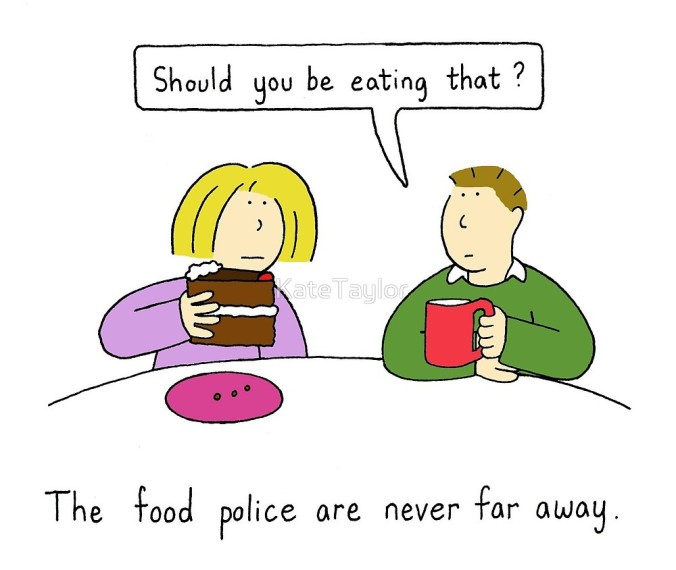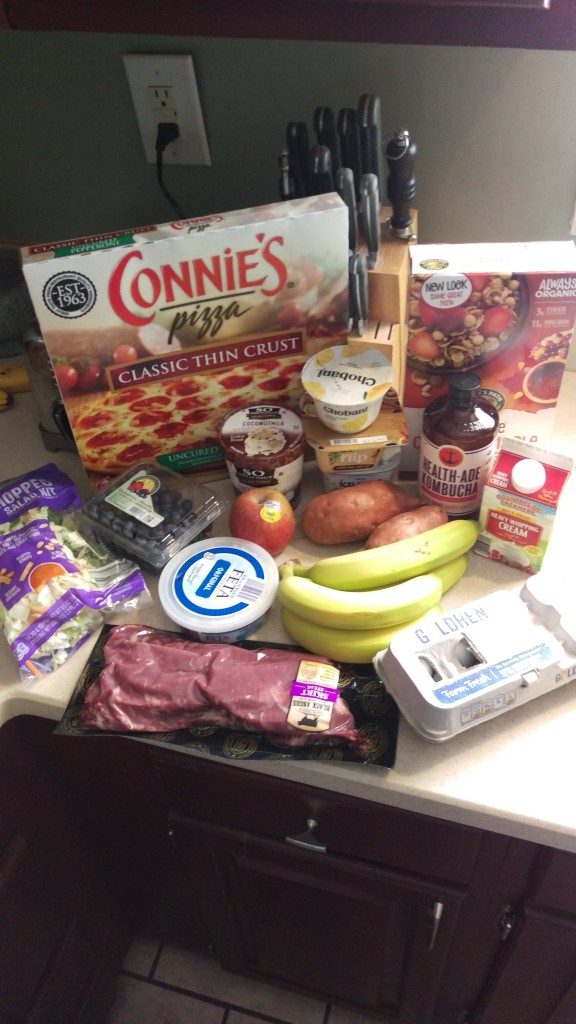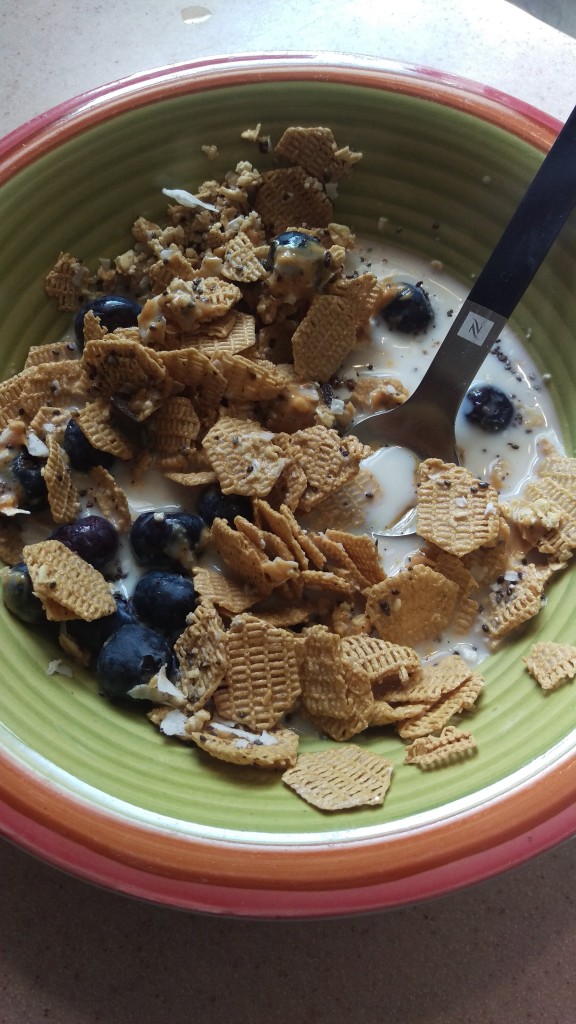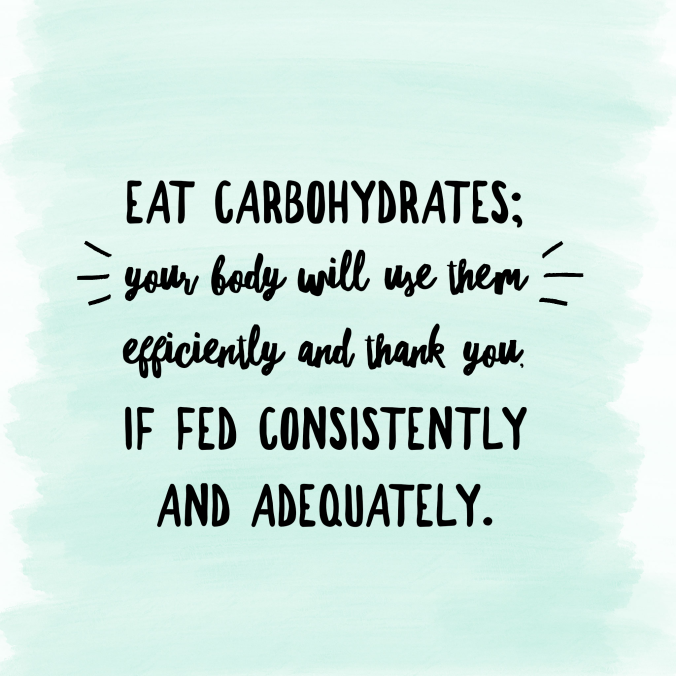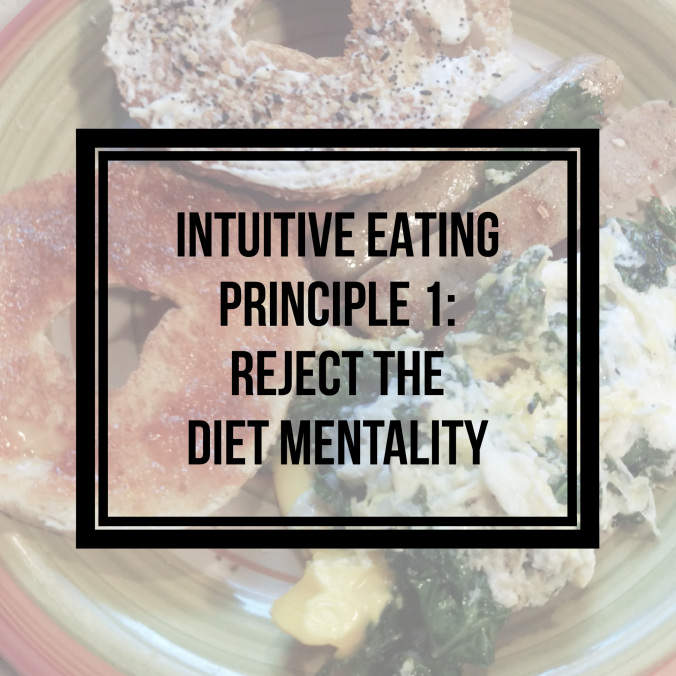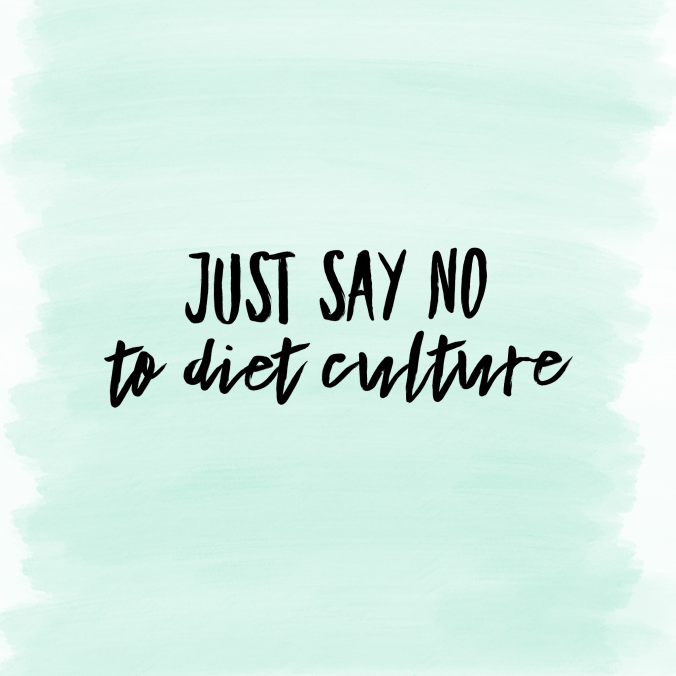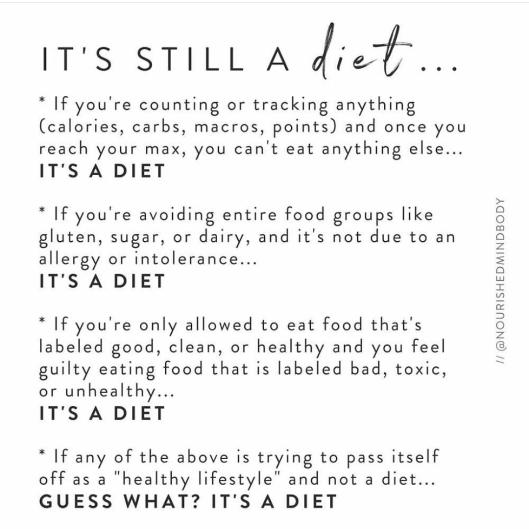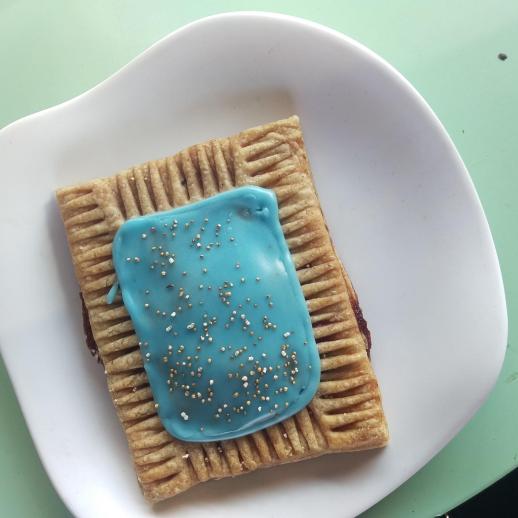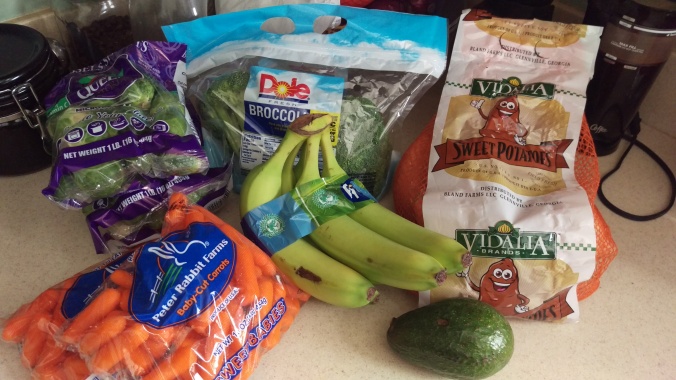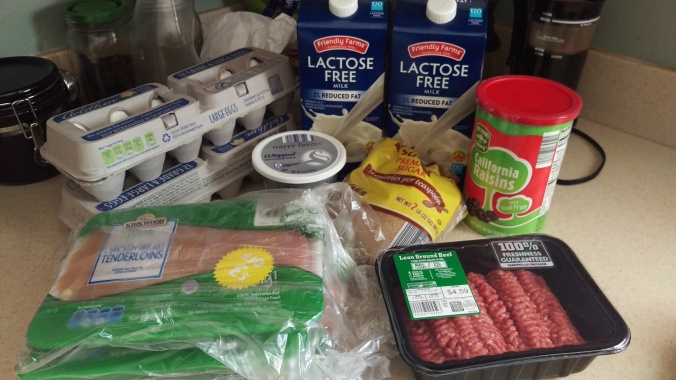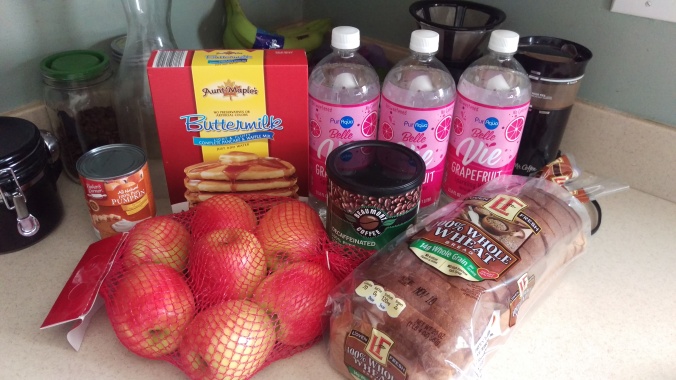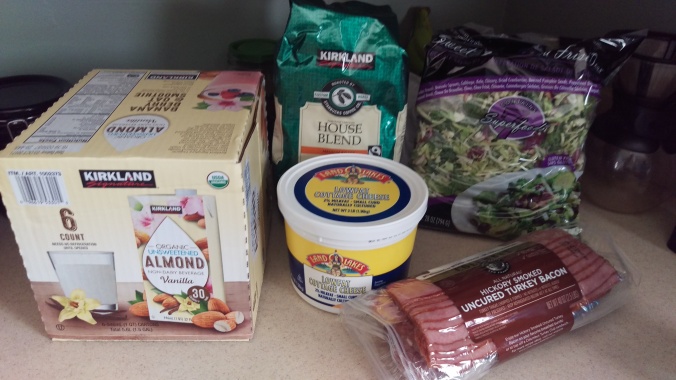In my last post, I spoke about breaking up with dieting and why dieting doesn’t work. So, what do you do after you stop dieting? How are you supposed to eat after you’ve been following a set of rules for so long? It sounds kind of scary, doesn’t it? I think a lot of people hang onto dieting habits because it is all they know and that makes them feel safe, comfortable. But, embracing the unknown and your intuition is how you can get further away from feelings of restriction, guilt, shame and unworthiness and get closer to what you truly need and want.
This is where Intuitive Eating comes in. It’s the antithesis to dieting. Instead of following a set of rules or guidelines, you are honoring your body’s physical and emotional needs to feed yourself. After getting back in tune with your body’s food needs, it’s amazing what other changes can happen in your life – you start becoming more aware of other needs (work, relationships, friendships, your relationship with your self, etc.).
“Riiiiight,” you’re probably saying. I know, I know. It sounds easier said than done, almost impossible. I get that. I used to think that too. We’ve been brain-washed by our society’s diet culture. (i.e.: when one research article comes out about carbohydrate intake correlating to insulin resistance, the media feeds off of it and soon everyone and their mother are afraid to eat carrots.) There’s so much nutritional garbage out there that we’ve lost the natural ability to tune into our bodies.
BUT, I am here to tell you that it doesn’t have to be this way forever. It IS possible to tune back into your body’s natural hunger cues. It takes some work and it won’t happen overnight. But, it is OH SO WORTH IT.
There is actually a really well researched and practiced set of principles that can help you become an intuitive eater. These 10 principles of Intuitive Eating were developed by Evelyn Tribole and Elyse Resch, both registered dietitians who work with clients that have troubled relationships with food and disordered eating behaviors. I read their book when I was recovering from my eating disorder, and I refer this book to anyone who struggles with obsessive thoughts surrounding food or their body. I think it is a great resource if you’re ready to get off the dieting train, but don’t know where to start.
(I also recommend seeing a trained and licensed therapist or an RD who specializes in intuitive eating/disordered eating because doing the work entirely on your own can be very daunting, especially if you are in the throes of a serious and dangerous eating disorder.)

Today, I wanted to introduce the 10 principles of Intuitive Eating to you because I plan on breaking each one of these principles down into separate blog posts so that you can see how to apply them in your life. Evelyn and Elyse recommend following the principles in order, starting with rejecting the diet mentality, because it is hard to truly embrace the intuitive eating process if you are still hanging onto the false promises of dieting. Gentle nutrition and exercise are last, because without learning the concept of intuitive eating and putting the first 8 principles into practice, it can be hard to become mindful of nutrition and your movement without obsessing or becoming militant about them.
1. Reject the Diet Mentality
Throw out the diet books and magazine articles that offer you false hope of losing weight quickly, easily, and permanently. Get angry at the lies that have led you to feel as if you were a failure every time a new diet stopped working and you gained back all of the weight. If you allow even one small hope to linger that a new and better diet might be lurking around the corner, it will prevent you from being free to rediscover Intuitive Eating.
2. Honor Your Hunger
Keep your body biologically fed with adequate energy and carbohydrates. Otherwise you can trigger a primal drive to overeat. Once you reach the moment of excessive hunger, all intentions of moderate, conscious eating are fleeting and irrelevant. Learning to honor this first biological signal sets the stage for re-building trust with yourself and food.
3. Make Peace with Food
Call a truce, stop the food fight! Give yourself unconditional permission to eat. If you tell yourself that you can’t or shouldn’t have a particular food, it can lead to intense feelings of deprivation that build into uncontrollable cravings and, often, bingeing When you finally “give-in” to your forbidden food, eating will be experienced with such intensity, it usually results in Last Supper overeating, and overwhelming guilt.
4. Challenge the Food Police
Scream a loud “NO” to thoughts in your head that declare you’re “good” for eating minimal calories or “bad” because you ate a piece of chocolate cake. The Food Police monitor the unreasonable rules that dieting has created . The police station is housed deep in your psyche, and its loud speaker shouts negative barbs, hopeless phrases, and guilt-provoking indictments. Chasing the Food Police away is a critical step in returning to Intuitive Eating.
5. Respect Your Fullness
Listen for the body signals that tell you that you are no longer hungry. Observe the signs that show that you’re comfortably full. Pause in the middle of a meal or food and ask yourself how the food tastes, and what is your current fullness level?
6. Discover the Satisfaction Factor
The Japanese have the wisdom to promote pleasure as one of their goals of healthy living In our fury to be thin and healthy, we often overlook one of the most basic gifts of existence–the pleasure and satisfaction that can be found in the eating experience. When you eat what you really want, in an environment that is inviting and conducive, the pleasure you derive will be a powerful force in helping you feel satisfied and content. By providing this experience for yourself, you will find that it takes much less food to decide you’ve had “enough”.
7. Honor Your Feelings Without Using Food
Find ways to comfort , nurture, distract, and resolve your issues without using food. Anxiety, loneliness, boredom, anger are emotions we all experience throughout life. Each has its own trigger, and each has its own appeasement. Food won’t fix any of these feelings. It may comfort for the short term, distract from the pain, or even numb you into a food hangover. But food won’t solve the problem. If anything, eating for an emotional hunger will only make you feel worse in the long run. You’ll ultimately have to deal with the source of the emotion, as well as the discomfort of overeating.
8. Respect Your Body
Accept your genetic blueprint. Just as a person with a shoe size of eight would not expect to realistically squeeze into a size six, it is equally as futile (and uncomfortable) to have the same expectation with body size. But mostly, respect your body, so you can feel better about who you are. It’s hard to reject the diet mentality if you are unrealistic and overly critical about your body shape.
9. Exercise–Feel the Difference
Forget militant exercise. Just get active and feel the difference. Shift your focus to how it feels to move your body, rather than the calorie burning effect of exercise. If you focus on how you feel from working out, such as energized, it can make the difference between rolling out of bed for a brisk morning walk or hitting the snooze alarm. If when you wake up, your only goal is to lose weight, it’s usually not a motivating factor in that moment of time.
10. Honor Your Health–Gentle Nutrition
Make food choices that honor your health and tastebuds while making you feel well. Remember that you don’t have to eat a perfect diet to be healthy. You will not suddenly get a nutrient deficiency or gain weight from one snack, one meal, or one day of eating. It’s what you eat consistently over time that matters, progress not perfection is what counts.
(Source: Tribole, E., & Resch, E. (2012). Intuitive eating. New York: St. Martins Griffin.)
I will be back soon to elaborate on the first principle of Intuitive Eating, Rejecting the Diet Mentality, and show you how I let go after years of being a former diet junkie.
Until next time,
Kate
